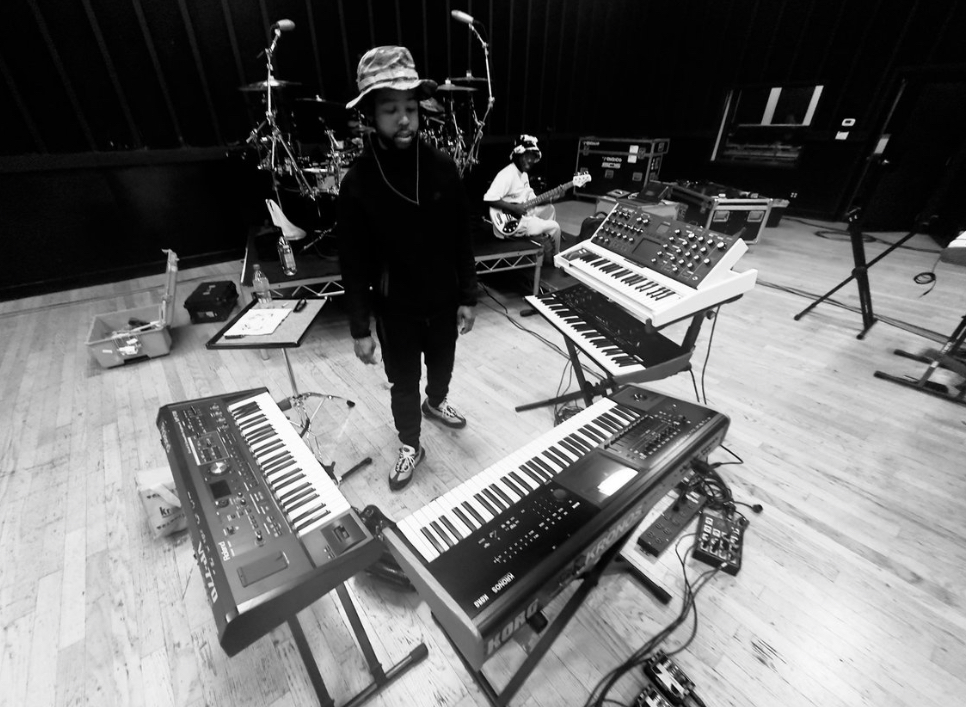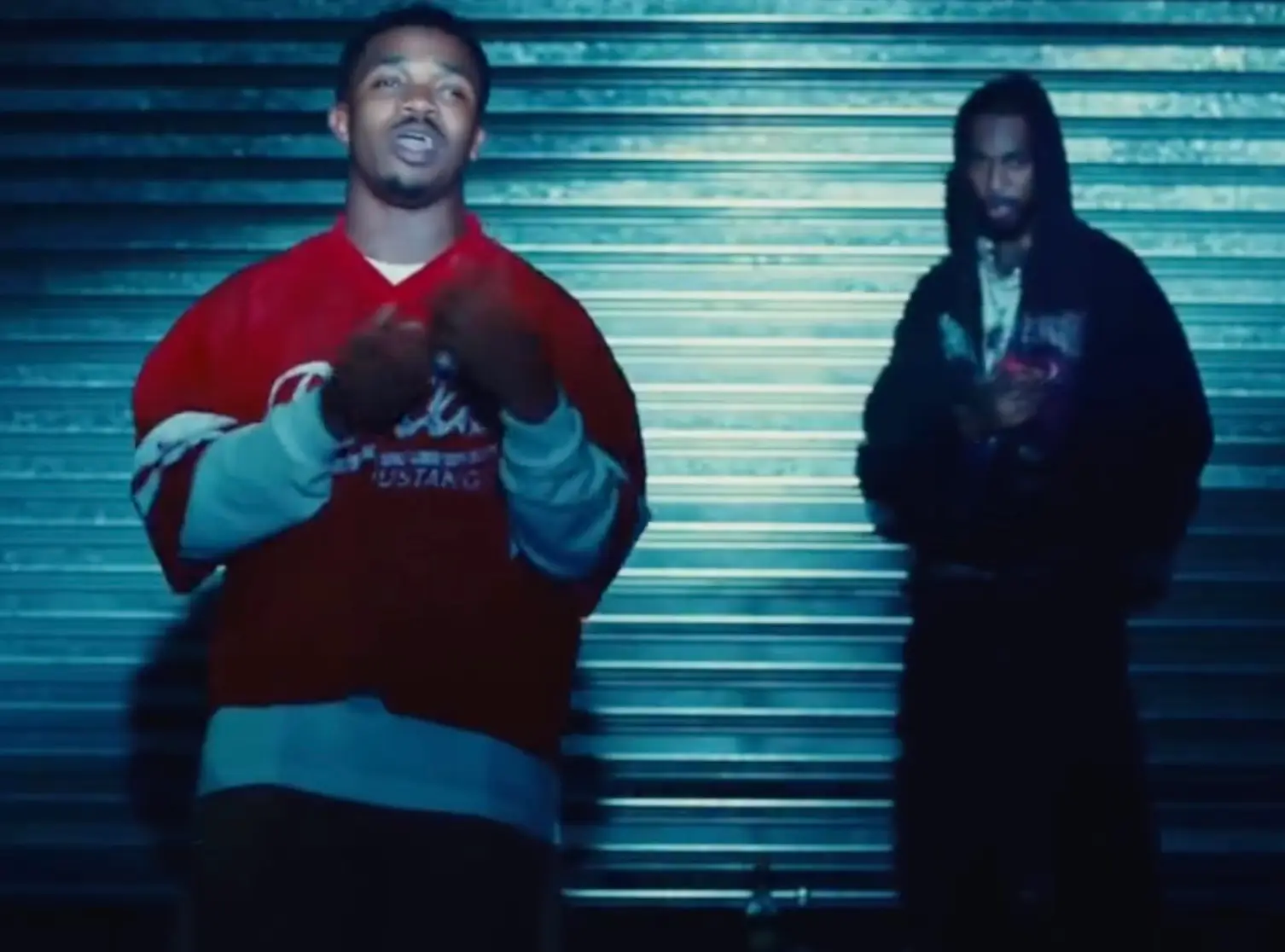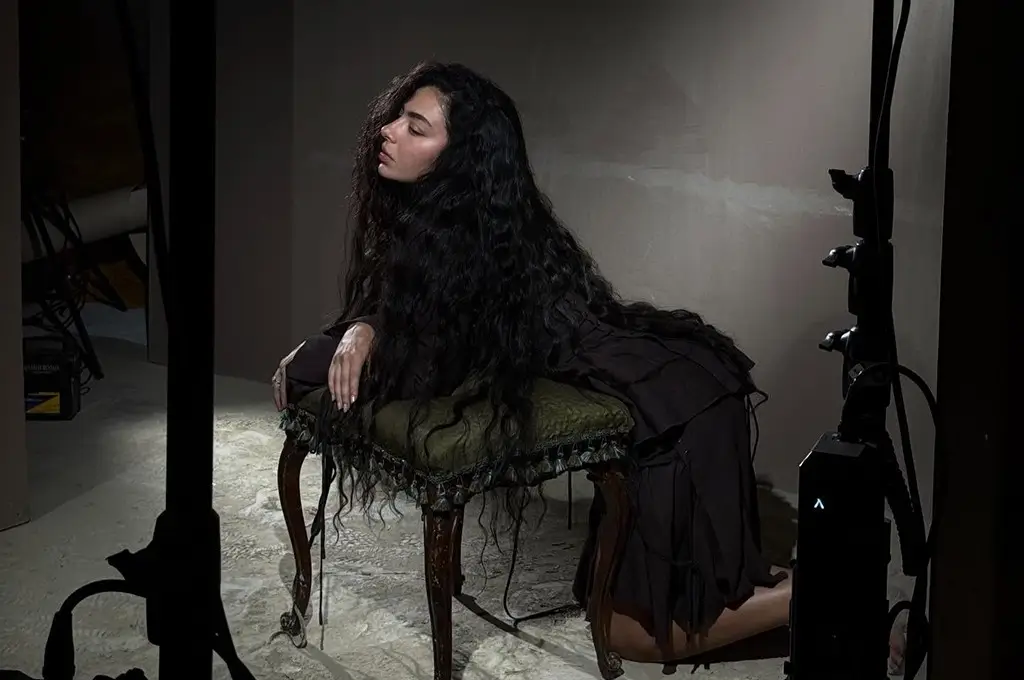In the ever-evolving spectrum of contemporary soul, few artists carry the cultural weight and sonic dexterity of Terrace Martin. A polymath who has floated across jazz, hip-hop, and funk with graceful precision, Martin’s production has shaped the DNA of West Coast music for decades. But in 211, his new collaborative EP with the velvet-voiced Kenyon Dixon, Martin trades expansive orchestration for something more intimate—something smoldering, nostalgic, and disarmingly honest.
211 is not an address. It’s a frequency. A harmonic intersection of groove and vulnerability. Across its brief but potent runtime, the EP leans into the lineage of R&B in its purest form—not as a retro indulgence, but as a radical act of restoration. Dixon, a master of tone and restraint, uses every note to bend time, while Martin builds atmospheres that feel equal parts smoky lounge and South Central street sermon.
Opening with “Safe,” the duo sets the tone immediately: a delicate piano progression, brushed drums, and Dixon’s falsetto cooing lyrics of relational refuge and trust. The track doesn’t demand your attention—it earns it, gently. Martin’s horn embellishments slide in like late-night confessions, adding weight without crowding the emotion. In this song, as in many moments on 211, the silence between sounds matters just as much as the sounds themselves.
“Let Me Talk To You” follows, channeling the spirit of Marvin Gaye and Donny Hathaway without mimicry. Dixon’s vocal control is astonishing—silky, grounded, and always sincere. Lyrically, the song is a plea for mature communication in relationships, elevated by Martin’s choice to wrap the message in Rhodes chords and analog warmth. It’s a subtle masterclass in songwriting, where form meets feeling without artifice.
Yet the heart of 211 arguably lies in “Sankofa,” a track whose title nods to the Ghanaian symbol meaning “go back and get it.” It encapsulates the entire philosophy of the project: looking backward to carry something forward. With jazz-rooted modulations and a haunting saxophone refrain, the track meditates on Black love, cultural inheritance, and artistic continuity. It is both memory and motion—proof that innovation often starts with remembrance.
Martin and Dixon, though generations apart in some ways, operate with a shared ethos: to honor the traditions of R&B and soul while pushing them into sharper relief. Their chemistry is evident not in flashy duets or studio pyrotechnics, but in the discipline of trust—knowing when to play, when to pause, and when to let a moment breathe.
In an industry saturated with algorithm-chasing singles and synthetic emotion, 211 feels like a hand-written letter. It’s brief, yes. But every syllable is deliberate, every note purposeful. For those yearning for soul that speaks with clarity and depth, Terrace Martin and Kenyon Dixon have delivered not just a project, but a blueprint—a quiet, powerful reminder of what R&B can be when its architects build with love, legacy, and intention.
No comments yet.








